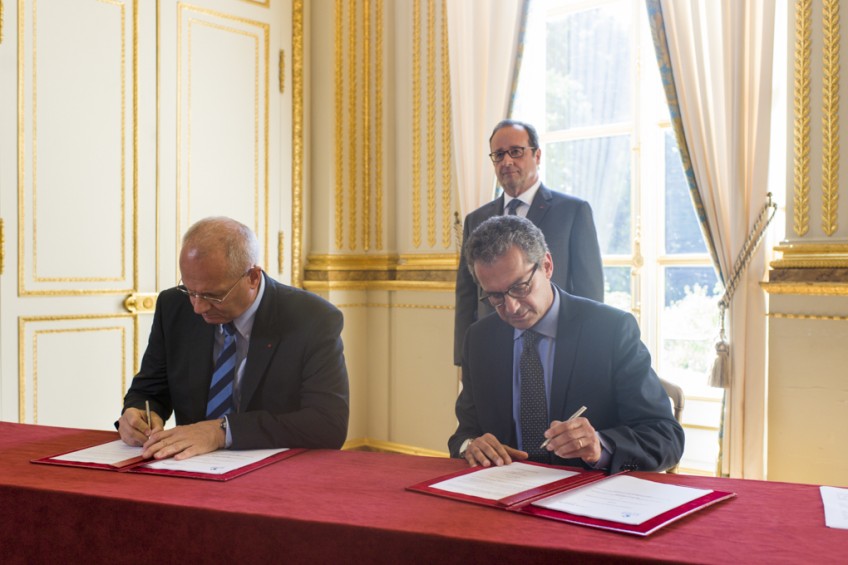©Jean Marie Heidinger/Inserm
CNES and Inserm, respectively the institution in charge of proposing and implementing French space policy and the leading biomedical research organisation in Europe, have decided to expand their cooperation in the area of space and health. For the first time, they have signed a framework agreement that will cover the advances in basic research made possible by studying the human being in space, as well as the applications of findings from space research in matters of health.
Space is an extraordinary laboratory for medicine and medical research on Earth. The loss of muscle mass and bone density, and the accelerated ageing of the arteries or disruption of the internal body clock observed in astronauts affected by zero gravity have led to improved knowledge of the human body. There has been a human presence in space almost continuously for over 40 years, and the main concern of the space agencies has always been to ensure astronauts’ health by taking appropriate measures. But in recent years, there have been instruments that allow comprehensive medical monitoring of astronauts, opening the opportunity for basic studies in physiology and medicine, conducted by Inserm and CNES. Moreover, these instruments may also find applications in medical research and public health.
This agreement, signed in the presence of the President of France by Yves Lévy, Chairman and Chief Executive Officer of Inserm and Jean-Yves Le Gall, President of CNES, provides for collaboration in the area of health in order to gain a better understanding of:
- the impact of space conditions on physiology and its consequences for health (particularly the sensory, cognitive, biomechanical and immunological effects)
Its aim is to develop methods, tools and services based on, among other things, space technologies in the area of health, particularly:
- the development of connected devices, particularly those designed for astronaut flight,
- the development of medical instruments
It will also give rise to a large number of experiments during the period spent by Thomas Pesquet on board the international space station. Access to simulation experiments conducted on earth will also be possible, as well as the opportunity to conduct research projects during parabolic flights or in recoverable capsules.
“Thomas Pesquet’s space mission will make it possible to write a new chapter in French excellence in the area of manned flight. With this framework agreement signed with Inserm, medical research will benefit from all the advances enabled by studying the human being in space, and major advantages both for applications and for routine health matters,” stated Jean-Yves Le Gall, President of CNES.
